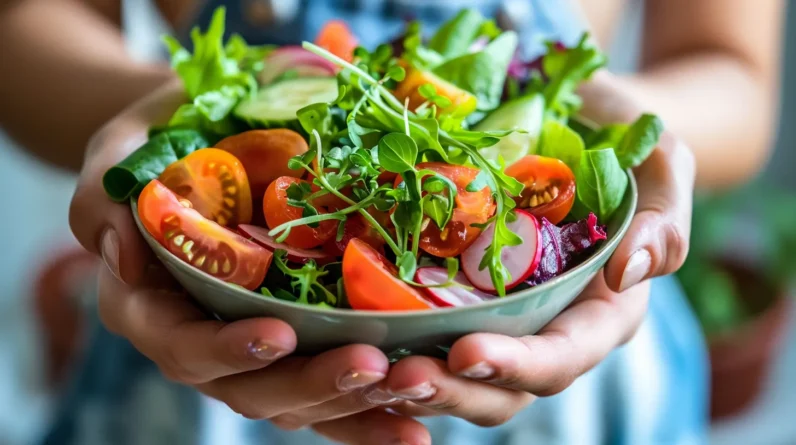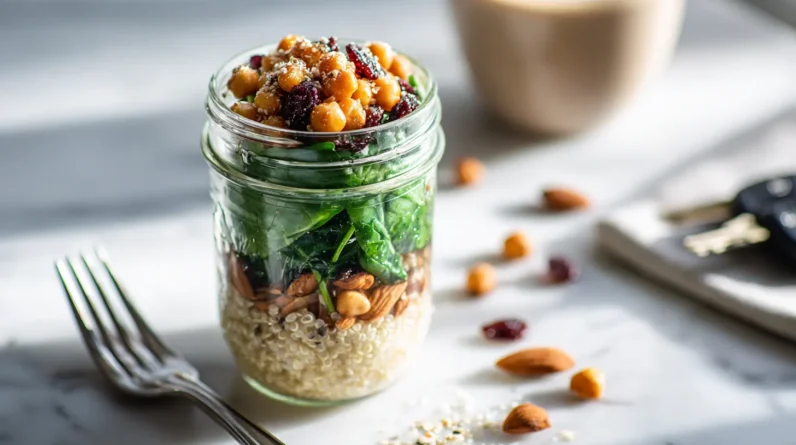
High stress levels can lead women to make less healthy food choices, impacting their nutritional intake and overall health. Women’s nutrient needs change throughout life, from adolescence to older age, influenced by biological, psychological, and socioeconomic factors. Key nutrients like B vitamins, vitamin C, magnesium, and omega-3s can help regulate stress. A balanced diet rich in whole grains, fruits, vegetables, and probiotics supports women’s cognitive function, mood, and healthy aging. Let’s explore how nutrition can empower women’s well-being.
The Stress-Diet Quality Nexus in Women
When women experience high levels of stress, their dietary choices tend to shift towards less healthy options. We see a clear correlation between elevated stress and increased consumption of high-fat, high-sugar, and high-salt foods, often at the expense of nutrient-rich fruits and vegetables. This shift not only lowers the overall quality of the diet, as evidenced by lower Healthy Eating Index scores, but also makes it harder to meet essential dietary guidelines. The impact of stress on dietary choices is particularly pronounced in women of reproductive age, with biological, psychological, and socioeconomic factors all playing a role in this complex relationship. Understanding these dynamics is vital for developing targeted nutritional support strategies to help women maintain a healthy diet even under stress.
Nutritional Needs Across Women’s Life Stages
As women journey through life, their nutritional needs evolve to support growth, development, and overall health. During adolescence, the focus is on calcium for bone density, iron for menstruation, and protein for growth. Pregnancy necessitates increased energy, protein, and iron to support fetal development. Menopause brings a shift towards osteoporosis prevention with calcium and vitamin D, while older age emphasizes protein for muscle health. Let’s outline these critical nutrients per life stage:
| Life Stage | Key Nutrients |
|---|---|
| Adolescence | Iron, calcium, vitamin B6, folate, magnesium |
| Pregnancy/Lactation | Iron, calcium, protein, energy, folate |
| Menopause | Calcium, vitamin D, magnesium, vitamin B12 |
| Older Age | Protein, calcium, vitamin D, B vitamins |
Understanding these evolving needs empowers women to make informed dietary choices for ideal health across their lifespan.
Socioeconomic Disparities in Women’s Nutrition
Socioeconomic disparities substantially impact women’s nutrition worldwide, manifesting in various forms across different country contexts. In low- and middle-income countries, women face a triple burden of malnutrition: undernutrition, overweight/obesity, and micronutrient deficiencies. Factors like food taboos, gender bias, and fluctuating food prices exacerbate these issues. Socioeconomic inequality leads to increased risks of anemia, hypertensive disorders, and adverse birth outcomes among disadvantaged women.
In high-income countries like the U.S., lower socioeconomic status correlates with higher obesity rates among women. Constrained food choices due to income limitations contribute to poor dietary quality and elevated obesity risk. Tackling socioeconomic inequalities is vital for improving women’s access to nutrient-rich foods and quality healthcare, thereby enhancing their nutritional status and overall well-being.
Enhancing Women’s Health Through Balanced Nutrition
Nutrition plays a pivotal role in enhancing women’s health across all life stages. Diets rich in whole grains, fruits, vegetables, and healthy fats provide essential nutrients that reduce chronic disease risk and support cognitive function and mood stability. For reproductive health, nutrients like folic acid, iron, and calcium are vital. As women age, nutrient-dense diets help maintain bone density and healthy aging. Probiotics can improve gut health and reduce inflammation. However, only about 25% of women meet the recommended five daily portions of fruits and vegetables. By focusing on balanced nutrition tailored to women’s unique needs, you can optimize your health and well-being.
Conclusion
Whew, we’ve covered a lot, haven’t we? The stress-diet tango is a doozy, especially for us ladies. From PMS to menopause, our nutritional needs are a wild ride. And don’t even get me started on the socioeconomic hurdles! But fear not, with the right nutrients and a balanced diet, we can conquer stress like the superheroes we are. So let’s raise a glass (of green smoothie, of course) to our health and well-being!







